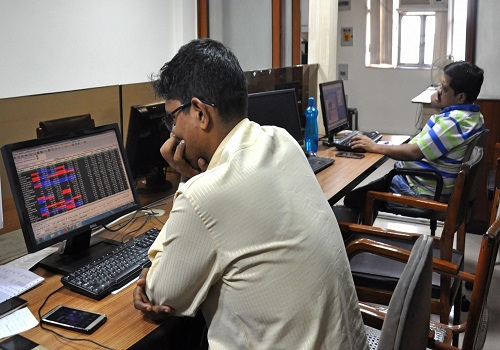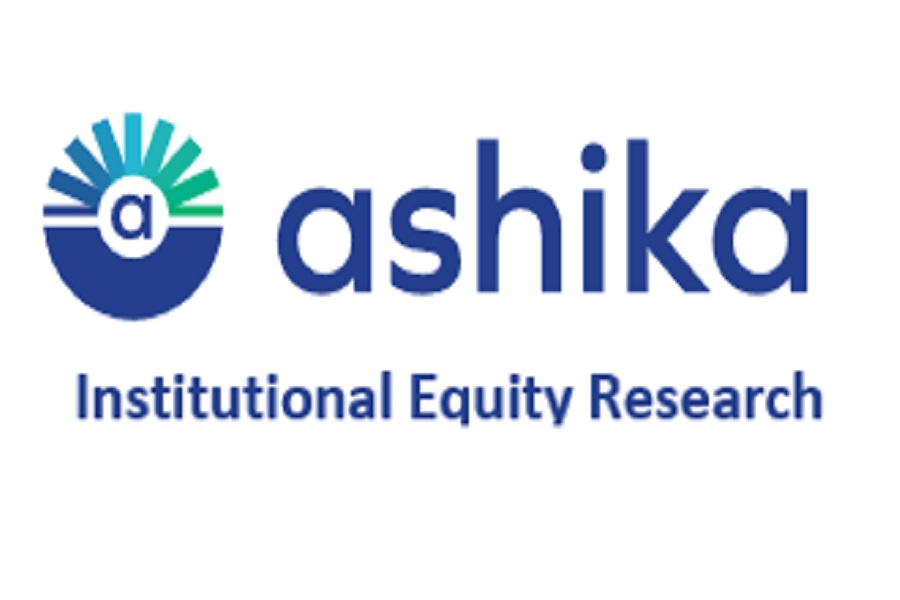Sodhani Academy of Fintech Enablers coming with IPO to raise Rs 6.12 crore

Sodhani Academy of Fintech Enablers
* Sodhani Academy of Fintech Enablers is coming out with an initial public offering (IPO) of 15,30,000 equity of face value of Rs 10 each for cash at a fixed price of Rs 40 per equity share.
* The issue will open on September 12, 2024 and will close on September 17, 2024.
* The shares will be listed on SME Platform of BSE.
* The share is priced 4 times higher to its face value of Rs 10.
* Book running lead manager to the issue is Srujan Alpha Capital Advisors.
* Compliance Officer for the issue is Monika Agarwal.
Profile of the company
Sodhani Academy of Fintech Enablers is engaged in the business of providing training, consultancy and learning services. Its focus area of service delivery has been under the domain of financial literacy and awareness. Financial literacy and awareness domain broadly refers to the knowledge and understanding of various financial concepts and skills that enable learners to make informed and responsible decisions regarding financial matters. It encompasses the ability to manage money effectively, budget wisely, save and invest prudently, and comprehend basic financial products and services. The company’s training, consultancy and learning services have majorly been focused in the areas of financial planning, fundamental analysis, technical analysis, basics of stock market and retirement planning.
The company’s learners base comprises of various categories of participants such as students (both pursuing active education and qualified candidates) graduates, individuals who are presently not working and homemakers through its courses, seminars, sessions and material in the area of financial literacy and awareness. It aims at transforming theory into hands-on practice for learners to achieve adequate and sustainable financial learning.
Proceed is being used for:
* Payment of fees to guest trainers
* Content development for course material
* Enhancement of brand visibility and awareness
* Building content studio and offline training infrastructure
* Information Technology (hardware including Software) procurement
* Website & application development
* General corporate purpose
Industry Overview
Education is fundamental for achieving full human potential, developing an equitable and just society, and promoting national development. Providing universal access to quality education is the key to India’s continued ascent, and leadership on the global stage in terms of economic growth, social justice and equality, scientific advancement, national integration, and cultural preservation. Universal high-quality education is the best way forward for developing and maximizing the country's rich talents and resources for the good of the individual, the society, the country, and the world. The education market in India is currently valued at $117 billion and is expected to nearly double to $225 billion by 2025. Currently, the school segment contributes 52 per cent to the education market in India, higher education contributes 15 per cent of the market size, text-book, e-learning and allied services contribute 28 per cent and vocational education in manufacturing and services contributes 5 per cent. Higher education system in India has undergone rapid expansion. Currently, India ‘s higher education system is the second largest in the world enrolling over 70 million students while in less than two decades, India has managed to create additional capacity for over 40 million students.
Meanwhile, online education is learning that takes place over the Internet and may be defined as electronically supported learning that is based on the Internet for teacher-student interactions and the distribution of class materials. Online education in India offers a variety of course categories, including curriculum-based coaching, test preparatory coaching, higher education degree courses, reskilling and skill enhancement programs, and language and casual learning. Before the pandemic, online education was mostly preferred by non-traditional students - students who were working fulltime or raising families, though it was gaining popularity due to wider access to internet and lack of quality coaching centres in Tier-2/ Tier-3 cities.
India is one of the leading countries in the online education sector. The Indian online education market is set to witness tremendous growth in the coming years. According to KPMG, India has become the second largest market for e-learning after the US. The market is poised to grow by $2.28 billion from 2022 to 2026 at a CAGR of 19.50%. By providing affordable and cutting-edge online education solutions to developed and developing countries, Indian growth will see a further increase.
Pros and strengths
Proven track record of its trainers: The company’s trainers have a proven track record in the field of financial literacy and awareness, making them highly effective. With extensive knowledge and experience in their respective domain, they effectively deliver the expected standards. Its trainers have successfully conducted numerous workshops, seminars, and training programs aimed at improving financial literacy among diverse audiences.
Brand image: The company has an established accredited name and reputation for quality under the domain of its operations gaining significant experience and establishing credible track record in the field of financial literacy. The company holds expertise in providing courses and training backed by updated course content and data enable it with significant competitive advantages.
Diversified course offerings: It provides a wide range of financial literacy learning solutions through its courses including short-term courses, long-term courses, expert courses, upskilling and reskilling courses. At affordable prices and therefore its services give it a competitive edge.
Risks and concerns
Significant portion of its operating revenue comes from learning, training and consultancy activities: Notwithstanding increasing diversification of its operations, the company currently expects to continue, for the short and medium term, to depend significantly on its revenue from its business of learning and training activities. Failure to attract potential learners may cause reduction in its cash flows and liquidity, if its business is significantly reduced for any reason. It endeavours to retain the trust placed in it by its potential learners enrolled with it by providing quality courses and product offerings and high service standards. Among other things, this requires constant upgrades to its pedagogy, course materials, trainers and delivery platforms. In addition to the content and training provided by the company, individual performance depends on various factors including personal merits, ability to perform under pressure, physical health and mental state. The performance of learners enrolled with it in a particular year impacts the number of its learners’ enrolments for future years. Any significant degree of dissatisfaction in relation to any of its courses or services offered by it, despite its best efforts and resources, may adversely affect brand image, enrolments and future revenues and profitability.
The company is promoted by first generation entrepreneurs: The company’s promoters are first generation entrepreneur. Their experience in managing and being instrumental in the growth of the company is limited to the extent of their knowledge and experience and it cannot assure that this will not affect its business growth.
Stiff competition: The business of providing financial literacy courses in an extremely competitive market has low barriers of entry and new competitors may easily enter and compete in this market. It competes with both organized players and unorganized players, such as regional or local institutes. Some of these competitors may pay better attention to individual needs of the learners and may be capable of providing more personalized services to each learners due to the smaller number of learners catered to by them. Further, these unorganized entities offer their services at highly competitive prices, having a well-established presence in their local markets. Any kind of learners’ dissatisfaction in relation to any of its services, facilities or methods may impact learners’ perception of its quality of services, which may materially adversely impact its reputation, future enrolments of learners and, consequently, its business and profitability.
Outlook
Sodhani Academy of Fintech Enablers offers financial training, consulting and learning services. The company mainly focuses on the area of financial education and awareness, which refers to the knowledge and understanding of various financial concepts and skills that enable learners to make informed and responsible decisions in financial matters. This includes the ability to manage money effectively, budget wisely, save and invest prudently, and understand basic financial products and services. On the concern side, a significant portion of the company’s operating revenue is derived from its business of learning, training and consultancy activities. Failure to attract potential learners in its courses due to factors, including but not limited to an unsatisfactory success ratio, may adversely affect its revenues, business, results of operations and prospects. Moreover, the strong competition in the business of providing financial literacy courses could also decrease its market share and compel it to reduce course fees or provide higher discounts on its course fees. This may have a material adverse impact on the number of learners enrolled with it, revenues and profitability.
The company is coming out with a maiden IPO of 15,30,000 equity shares of Rs 10 each at a fixed price of Rs 40 per share to mobilize Rs 6.12 crore. On performance front, the company’s revenue from operations is Rs 137.58 lakh for the financial year 2022-23 as compared to Rs 185.89 lakh for the financial year 2021-22 representing a decline of 25.99% on account of decrease in numbers of session deliveries. Moreover, its profit after tax increased by 11.85% to Rs 138.59 lakh for the financial year 2022-23 from Rs 123.91 lakh for the financial year 2021-22, reflecting a net increase of Rs 14.68 lakh. The company’s business model leverages on growing technologies and uses up-to-date technology to deliver the courses, which enables the learners to use up to date course content to engage in the self-paced learning. The courses may also be used as an independent learning through the internet, which offers greater flexibility and convenience to learners, who can access its content anywhere and at any time of the day. Going forward, the company plans to create learning methodologies that would enable inclusive growth of all learners to achieve financial literacy through adequate mix of education and practical learning. For this purpose, it intends to provide long-term and short-term courses across various domains under financial literacy umbrella. There are various domains in the area of financial awareness and literacy under which various programs and courses can be offered to equip individuals with the knowledge and skills necessary to make informed financial decisions.























